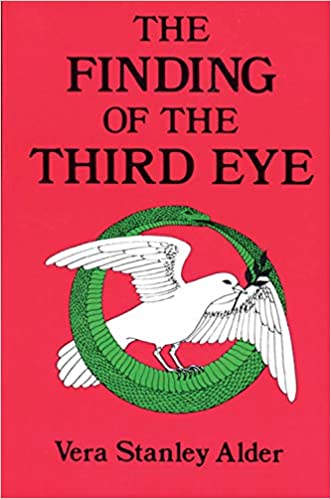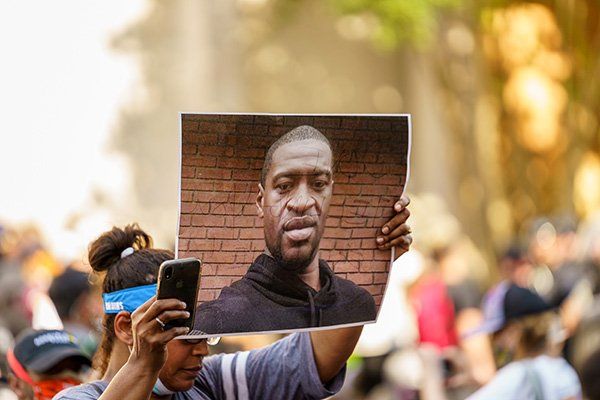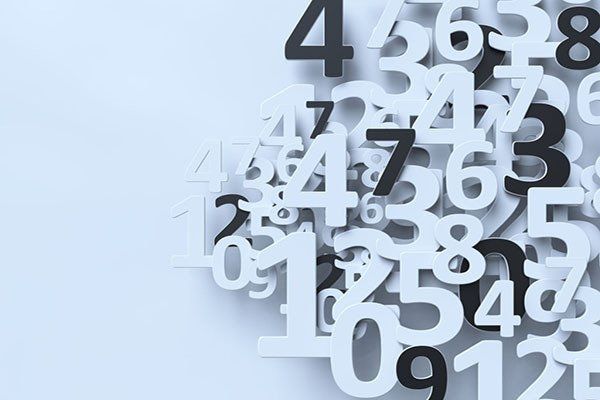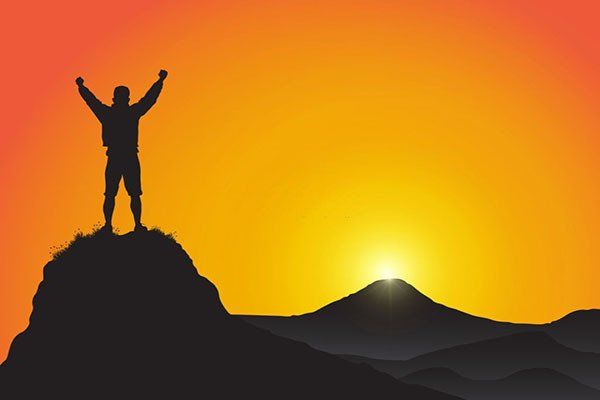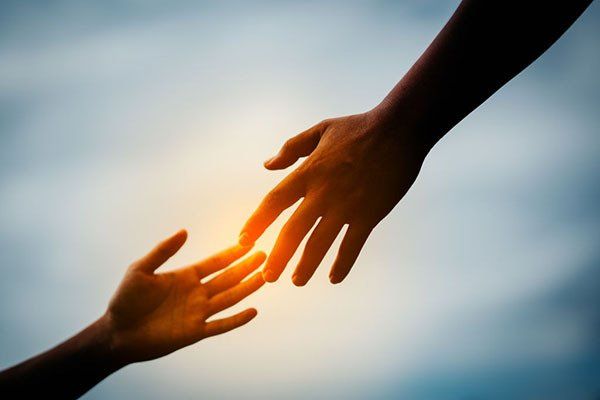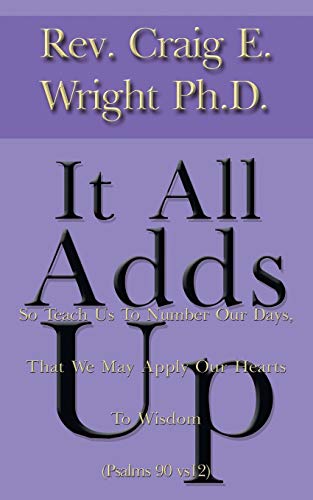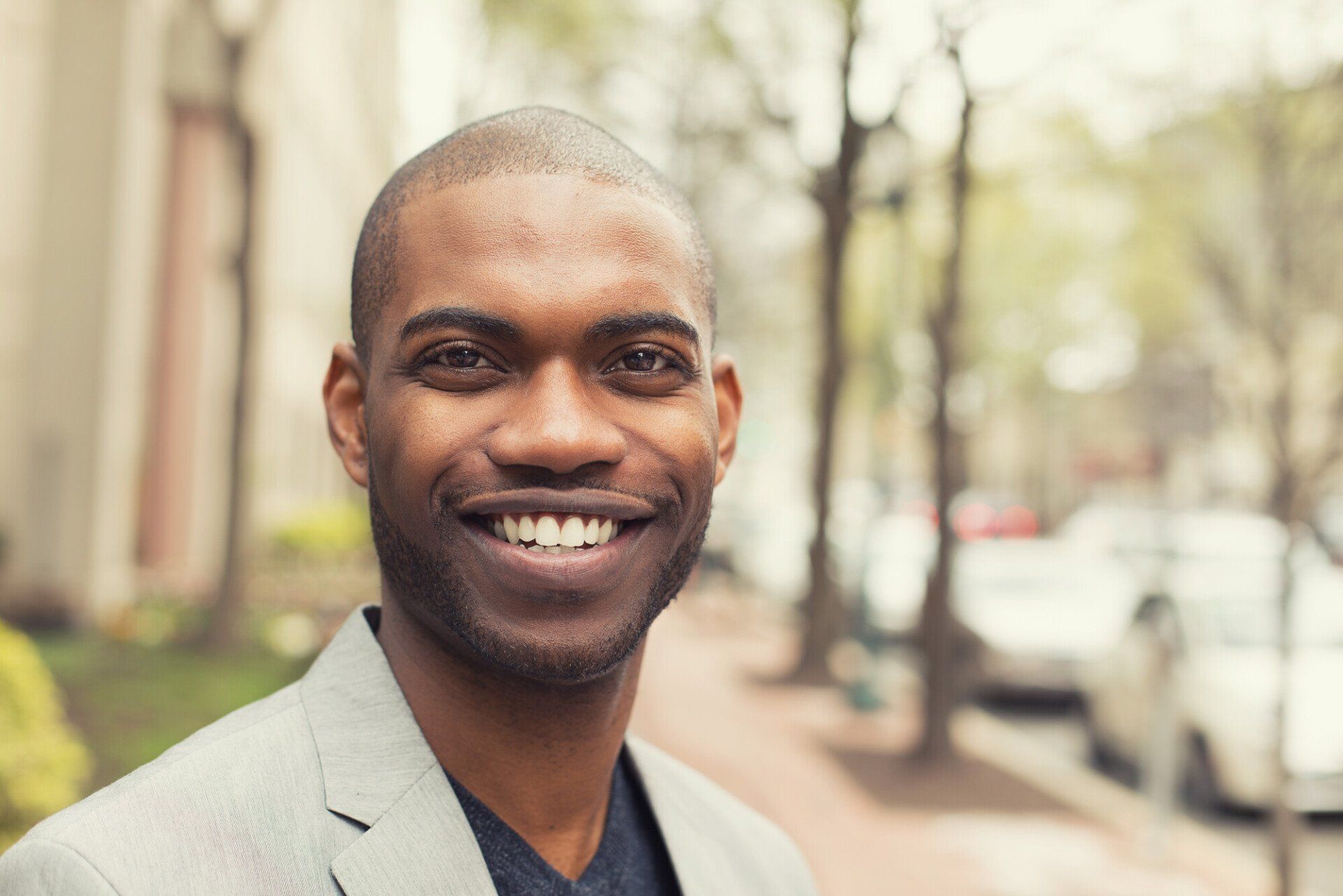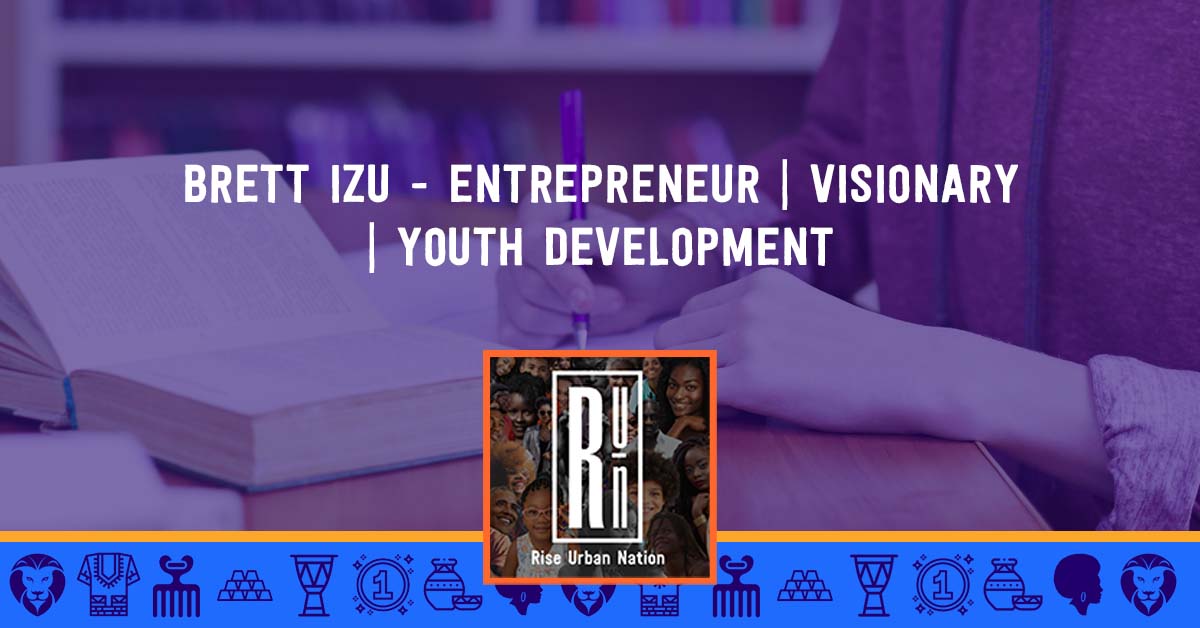Dr. Craig Wright Metaphysical Practitioner| Numerologist
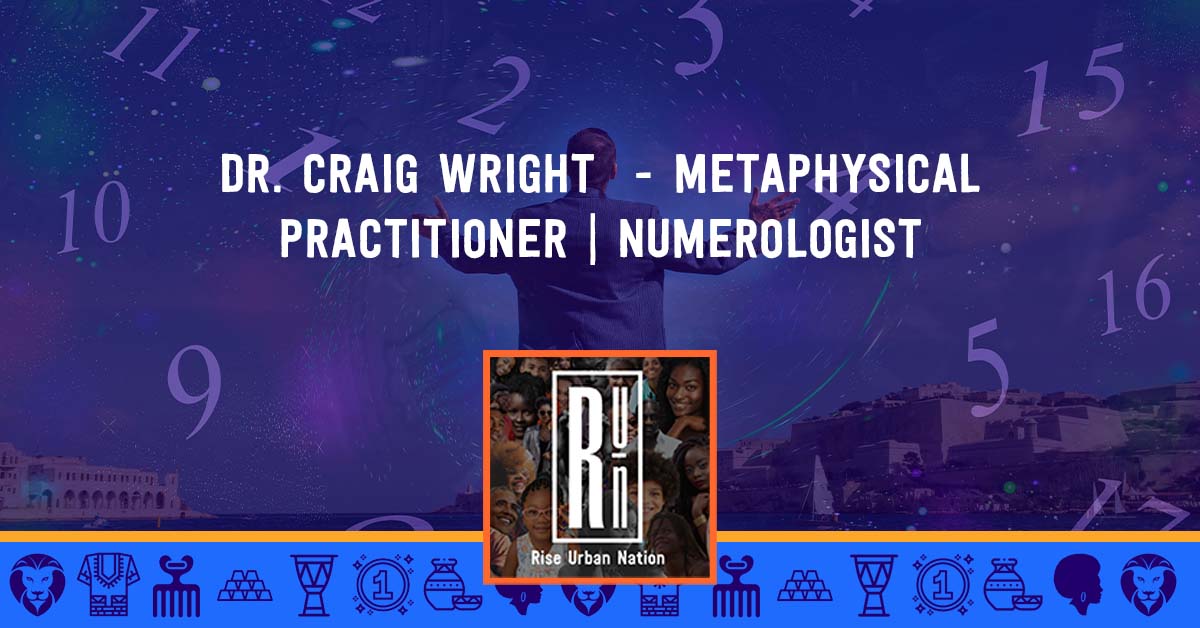
Want to know what your numbers are and what they mean? You may want to contact Metaphysical Practitioner and Numerologist Craig Wright for that. Craig is an Ordained Metaphysical Minister, and a Certified Metaphysical Practitioner. It was the tragic death of a friend in the summer of 1972 that prompted Craig to search for the meaning of life. This began his study of NUMEROLOGY. After many years of personal research, Craig went public in 1988. His presentation on Numerology generated so much excitement that people began to ask him to share his knowledge about this fascinating science. The momentum has continued to grow. Craig's services have been sought nationally and internationally. He has served as a resource to several human service agencies by conducting seminars and workshops. He has a wide array of clientele who consult with him regularly on personal as well as business matters.
Connect with Dr. Craig today and get the meaning of your numbers:
Linktree: https://linktr.ee/IamDrCraig
Instagram: https://www.instagram.com/numerology_services/
Facebook: https://www.facebook.com/NumerologyServices
We are currently surveying our listeners (or viewers) to learn more about you. Please take a few minutes and visit our website and click on the 'Listener Survey' link found on the home page. Thank you."
http://survey.podtrac.com/start-survey.aspx?pubid=ON_VODqpc104&ver=short
---
Listen to the podcast here:
Dr. Craig Wright Metaphysical Practitioner| Numerologist
This episode got Dr. Craig. What can I say about him? His energy, wisdom, whole spirit and being are amazing. We went into a conversation about his career as a numerologist. I got to learn a little bit about how numbers play such a significant role in our life. There's a certain side that he spoke to with the way he's developed his career in numerology, spirituality, and being able to connect both of those worlds together.
As you'll see in this episode, some of his lived experience of talking about history in the flesh, being around during the death of Martin Luther King, and now being able to see a Black woman as vice-president and then the tragic killing of George Floyd. How do these moments in time have differences? The impact in these two moments in times, and looking back on how he sees it from the being here on earth and living during both of those times and different phases in life?
He has a book that's all about numbers. I definitely invite you to check it out. Go to his website. There's something unique that he does with numbers that allows you to tap into yourself, understand who you are, your calling and purpose, and hopefully, you get to try it out, see it for yourself. Dr. Craig, Ladies and Gentlemen.
That made you very wise. Even as a young person, you were wiser than your years, as they say.
I love that whole analogy. I do resonate with a lot of that. There's a lot of truth in that statement. Either you know me very well, or you're in touch with the ancestors and everything else.
I'm a numerologist. That was a definition of the letter Y that I shared with you. Every number and every letter represent a spiritual quality. As we were created by the word of God, the letters in our name and the numbers in our birthday are symbols for the word of God that created us.
Amen to that.
When is your birthday?
It's December 7th, 1978.
There's that seven again. The letter Y, you're born on the seventh and your year, 1978. If you add 1 plus 9 plus 7 and 8, that adds up to 25, and 2 plus 5 is 7. It's a lot of number sevens in your chart. That is indicative of strong, intuitive power. The need to spend time alone on the seventh day, God rested. You need quiet time by yourself. What was your day again?
It's December 7th, 1978.
It's 3-7-7. That's your month, day, and year. 1 plus 2 is 3. It was 12 and 7 is 19, 19 and 25 is 44. That's a master number. The number 44 is called the master liberated vibration. It was expressed by Dr. Martin Luther King Jr. It was a 44, and so was Nelson Mandela. Your advice and counsel can set other people on their path of liberation. Your focus is more within than your intuitive side.
I'll put it this way. You knew about the secret before the book came out. You're wired that way intuitively. Seven is a number of faith, so you're a mountain mover. You never have to worry about how things are. You have to get alone or near some water or mountainside, countryside, a serene environment and visualize, and you can materialize.
The only challenge you face is follow-through. You're very creative. You've got a lot of things going on, and you're dropping some things that will take you where you want to go. The challenge is to follow through and limit your focus to no more than four things at a time. Most people can't do that, but you can take on much more. You have to limit it to four things at a time. You'll start to manifest your ideas and feel okay. I'm not spinning my wheels, coming home tired, but I haven't accomplished anything.
Because we were created by the word of God, the letters in our name and the numbers in our birthday are symbols for the word of God that created us.
That is spot on. Especially since the pandemic, there's been increased productivity on certain things because I was able to have that time alone to focus and isolate myself. Pre-pandemic, I had a lot of things going on.
My thought was, “What if we do that too?” With the pandemic that slowed everything down, and that's been a benefit, not only as you phrase it, but it's also been a benefit to the planet. Getting us back in touch with slower times and truer values, Trump represented how far off we had gotten. Now we're back on track.
That's what I do. I share with people information about their name and their birthday. Their birthday was God's part of the contract, and naming deals are part of the contract. Like the prophet Jeremiah, we have a contract with God before we are formed in the world, but we come with the owner's manual that most people aren't aware of.
If people start to look more within, they will find everything that they need and more.
That's the message from the number seven to the people. That's what you're here to share. The seven have come with a shovel, and they're here to discover treasures and share them with others. You also have an ability for written and verbal communication. God wouldn't give you the ability to find treasure if you didn't have the ability to share your findings. You're also a writer.
How did you get in touch with this unique gift you have that you are sharing with me? When did you first learn that you had it? How did you begin to harness?
Before I answer that, I have to say this. There's a difference between figures and numbers. For example, if I hold up this recorder and I say, "I have one recorder," that's the figure. If I say, "Olympus recorders are number one," that's not a quantity. That's a quality of being the best. See the difference, and one is for quantity. The other represents a quality. Number one, the best.
I started off being very good with figures. In the seventh grade, I got As in Math and Science. My parents decided I was going to be an Engineer. Every Math course, every Science course, they could imagine all year long. Summer school, seminars, or workshops. My mother was a school teacher, so I was never out of school. I'm preparing to become an Engineer. I wanted to go into the Air Force, fly jets, and become an Engineer. I had my life all planned out.
My best friend died from a drug overdose, and I didn't even know he was using. That stopped everything. My roots weren't deep enough for that experience. Up until then, I was an atheist. I didn't believe in God. I thought God was a thing in people's imagination or a crutch for the weak. If you couldn't measure it, quantify it, I was a technocrat.
When that happened for the first time, I began to pray and asked God, "Why was I here? What was the meaning of life? I wasn't going any further. You could take me now. I need answers." That's where I was. From that state of yearning, I heard a song. The song was by Roy Ayers. It was on an album called Everybody Loves The Sunshine.
They played a cut from that in the Super Bowl 2021. The song that I heard that intrigued me was on a jazz station, Morgan State University Radio, and it was called The Third Eye. The lyrics went, "Baby, baby, baby, look to the sky, seeking to find the third eye. Secrets of numbers, secrets of sound, secrets of wisdom can be found what I wanted to know." That song mesmerized me.
I bought the album, read the jacket cover. There was no Amazon or Google. It took me two years to find a book that the author of the song had read. It was called The Finding of the Third Eye by Vera Stanley Alder, and that was my introduction to numerology. I started reading about The Secrets of Numbers. Every number has a meaning.
Everybody knows 1) Leadership. 2) Patience. 3) Expression. 4) Work. 5) Freedom. 6) Service. 7) Faith. That's your number. 8) Money and power. 9) Selfless giving. I began to study those numbers, and it started feeding me. These were the answers I was looking for. That's how I got started. It was the death of my closest friend.
What's your number out of curiosity?
My month, day and year add up to the number seven. My year of birth, 1951, adds up to 16. That's a seven. My name is a seven. My vowel total is seven.
No wonder you know me so well.
That's what I discovered. I'm a seven and doing what I'm supposed to do. It's studying mysteries of life, the next part came. It was time to share with others. That was the hard part. This was back in 1972. People weren't as awoke as they are now. I was definitely at the oddball talking about secrets of numbers and sounds.
People are getting as far away from me as they could. They didn't know what was going on with me. I began to pray and ask, "What should I do?" I started off in the seminary and didn't stay there long. They didn't want to hear about third eye or any of that stuff. Even though it's in the Bible, raining 40 days, 40 nights, name changes. All of this is based on the science of numerology.
I ended up going to the University of Metaphysics after doing a great deal of study on my own. For years, I would go to the Library of Congress and read the books they have. That's the only thing that was, but now there's numerology for dummies. You can go to any library and get it. This dawning of the age of Aquarius thing, I've lived through it and seen it happen. Whereas people were running from me now, people were seeking me out. I realized God was preparing me in those early years, so I'd be ready for now.
I'm finding that to be true now in my career and life. Everything that I had endured from being the black sheep when I was younger allows me to be the prominent leader that I am now, and everything that I experienced has prepared me for this moment.
It was a test to see if you would stick to that path and listen to God's voice, as opposed to the naysayers, the doubters, the haters, as they are called. That's the test that the number seven has to face.
In that test of faith, there were some dark times where I was like, "Maybe I should switch gears here. I need to stop holding on to this thought."
It cost me my first marriage. I was given an ultimatum, "You either going to choose this numerology stuff or me." I said, "You or God. That's what you wanted. I'll be over every weekend to see the kids." When you're seven, you have to give up something you're attached to. That's the test. You will be asked to give up something, at least one thing you're very attached to. It's a test the faith.
What is your doctorate in? What'd you get your doctorate in?
I ended up going to the University of Metaphysics. My PhD is in Metaphysical Counseling, but I did it backward. As a numerologist, I was already doing metaphysical counseling, and God came to me and said, "It's your credentialism. I want you to go to this school." I couldn't find it anyplace else, but I was guided to the University of Metaphysics. It's distance learning.
God wouldn't give you the ability to find treasure if you didn't have the ability to share your findings.
I wonder if you're able to use that to answer the numerology. It seems like they could work hand in hand with each other, but you answered that question. Welcome everybody to another episode as me and Dr. Craig was getting right into it. When you see your soul brother, and he starts speaking your language, you sometimes forget that you're on a show. What I've learned in doing these shows is that sometime in the introduction, we get into a great conversation.
To tell you a little bit more like back in a time when I was doing what you were doing, trying to share all the knowledge and information I learned from whatever I read it internally, or however I acquired that knowledge. I go out to different communities, especially to people that look like us, schools, and so forth. I often find that we have limiting beliefs of whether who we are or could be. These limiting beliefs manifest in other ways in our trajectory of success and navigating the world.
I want to start a show like this where we can have these conversations. We were having a day. Unlock some of those mental beliefs about freeing yourself from mental slavery. As we start to see more of us having these conversations and these dialogues, they will unlock something in somebody else, and then they can go share and unlock. The cycle continues. I greatly appreciate you being on here.
That's the true method of change. It only occurs from within. When each person journeys within, I lived through Martin Luther King and Kennedy’s assassination when everybody was excited, we had the White House, Senate and marches in the street, and then suddenly, it was all over. That's what taught me the true revolution is within. That's where true and lasting changes occur.
We've been talking about freedom for years, but when everybody around the world saw what happened to George Floyd, that was a gut-level reaction. There was a global response to Black Lives Matter. You got to reach people within. There are souls like Christ who came to sacrifice himself for us. The name Jesus is a number eleven, and the name George Floyd is also a number eleven. The number elven energy is about sacrificing yourself for your ideals.
George Floyd was a great soul who had a contract to change the world by sacrificing his physical shell because I believe the spirit is on. It can't be destroyed. The first thing they teach us in Physics is energy can be neither created nor destroyed. I said, "God is real. I should tell everybody. Why are you saying it like that?"
Here's what I would like to know from your point of view. You were around when Martin Luther King got assassinated, and you're here now when the George Floyd situation happened. We have two different decades, two different eras. A Black man gets assassinated and murdered. Both changed the trajectory of our country emotionally, mentally, physically and spiritually. What's so different about both of those moments in time, in your essence and opinion? What was the catalyst? What was the energy and the difference between both of these significant moments in history?
In one aspect, similar because they helped move things forward. The difference was in Dr. King's assassination during those times, there were a majority of the people who weren't in favor or did not have that same belief that he had. People were saying, "We'll give you stuff separate but equal," or "We'll let you have this and plan out something in a few years from now." He was about, "No. Now is the time. Let's energize."
His model was Gandhi. He saw what Gandhi did fighting the British, the biggest empire on the planet. They said the sun never set on the British empire. Those guys had their hands on everything. Without firing a shot because they would have lost if they took arms, they were ready for that. Gandhi showed how passive resistance, faith, prayer, meditation and belief is the stronger force. He was King's example.
King practiced that. Over here, we had never heard about this non-violent thing. I didn't hear about Gandhi until they made the movie. I wasn't aware. We didn't have the internet. People weren't as worldly and as aware. That's the main difference with the George Floyd incident. Everybody in the world had access to those videos and saw them live. Not reading or hearing about it, but I witnessed it with that guy with his knee on his neck for nine minutes.
The true revolution is within, that's where true and lasting changes happen.
He could hear him calling out. That was a major difference. People had more ability to experience it. It thrust everything forward. I saw people from countries I'd never even heard of carrying signs saying "Black Lives Matter." It was a global awakening, consciousness, and an uplifting of global togetherness if you will. That's how I view this pandemic. It's going to require that we work together. It doesn't matter if we get numbers down in North Carolina. If in South Carolina, the numbers are 80% positive.
It doesn't matter if the US controls. In Jamaica, things are under control. As long as one person or individual is dealing with this situation, one community can affect us all. This is a universe telling us to step it up. We are one. We're starting to realize that now. Our children are going to take these things for granted. The things that we fight for become their norm.
I even see it in my daughter now. Partially, I am to blame because I have spoiled her not to need and want the things that I needed growing up, but with that comes another level of entitlement. I struggled with this. How do I make sure the next generation, including her, doesn't take for granted the things we fought for? At the same time, I want her to start the conversation at a different place from where we started it, so she advances things forward. I don't want her to live in the past. I wanted her to move forward, but I wanted her to know that, "This thing that you enjoy did not come on a silver spoon."
There are people who are making tremendous sacrifices. We can't forget that. There are people who die for the right to vote. We had 40% or 50% turnout of registered voters. I think that's another thing that changed. We saw states that were traditionally red turned blue. I don't like those terms, but that's how they speak of it. We saw populations who didn't see themselves or couldn't visualize their vote even matter. Tied to George Floyd and not just George Floyd, but in Baltimore, there was a guy there who suffered the same fate through a rough ride. All around the nation, but it reached a swelling point where the same energy they got people out in the streets took them to the polls.
I hope that level of consciousness stays there, but because of that, we were able to put the new president in the White House. We saw a state that was traditionally Republican-Democrat because people who would not vote before got registered and made it to the polls. Thank goodness we have a president now who recognized that and has vowed to respond. There's a new block of voters that's been totally ignored. A new coalition that they're going to have to respond to is how politicians live. Things are looking up.
Talk about things looking up and things changing and so forth for the new norm. I remember having a conversation with my friend, and we were talking about, in my lifetime, I never thought I would see a Black president. I've seen a Black president and a female Black vice president. My daughter's grown up seeing that. She thinks that's normal. For me, that's not normal.
I had the same thought. I thought to myself, "During those eight years Barack Obama was president, people had kids. There are kids being born, and that's all they would have known would have been a Black president." I don't know if they are politically aware enough to realize that, but that's their norm. What do you mean? There's no equity and fairness. We got to see it when the capital was attacked and the difference in response to folks that did that. The whole time I was watching that show with my wife, we would say, "How they would have probably brought in napalm if there were other people doing it," and took everybody out.
You hear the feedback, "They made a couple of hundred arrests." Are you kidding me? They would have dropped that net on us and scooped everybody up. There's definitely was a difference in response. People saw that too, and that's raising some eyebrows. There were a few commissions that have been formed to investigate that. I hope they follow through on that. Unfortunately, there was a police officer there, a guy who lost his life, and they have not found the perpetrator yet.
I hope they make their reward high enough that ultimately that person is called to justice because it isn't right. We had a president trying to normalize that behavior, and the pendulum swings. I'm glad to see it's swinging back now. I hope we never go back to that again. Numerologically speaking, the number nine is the last number. When we count, we start with zero. That's a symbol for God. We go to the number nine, which is endings and completions.
Trump was 45. The reason why I'm saying that is Trump was the 45th president. 4 plus 5 is 9, which means we will never, and I can say that confidently, there may be people who had that type of mentality still around forever, but we will never have to deal with that type of energy on that level again. That was goodbye to the past. That's what that was.
I'm glad to hear that because I don't know if my soul could take another one.
That was goodbye to the past. That's America's past. That's the world's past history now. We're going to see it over the next decade or two. We're going to see democracy sweeping and people demanding a voice. We're going to see that. The majority is going to change. People who enjoy being a majority are going to be in the minority. This is what they've been fighting, but it's a natural progression. Going back to our original roots, the original person was a cock.
As we grow and get rid of these inequities, and as we mature, it's going to be all that way again. That's what's happening. If you look around the world, that's what's going on. To some people, they're freaking out because of it, but it's a tide. It's a way, God's plan as we awaken to our oneness, the material we always respond to the entire world. That's the natural progression of things.
I'm looking forward to it. I want to shift gears a little bit and go into your illustrious career and then take us back down memory lane of how we got to here. I know you mentioned the education part. One thing I like to ask my guests, there are going to be some people who are inspired by you who want to focus on numerology and possibly take that up. I like to show people the transition of how people got to where they're at in their careers.
I like to do it by asking a question, and I want you to entertain it for me for a second. I always liked to ask what the person's first job was because I like people to know that people don't jump into this career by starting in the field of their profession. There's usually a process. It's not where you start. It's when you finish. You can learn anything from that first job that helps you transition and catapult into where you're at now. What was your first job, Dr. Craig?
No one came up to me and gave me a book and said, "Here, this is about numerology reading." I heard a song. I followed my instinct. It led me to a book that took me to the Library of Congress, reading everything I could. I was my first client. When I began to share with others, as I mentioned before, as a number seven, our mission was to discover the truth and share it. The discovery phase was fine, but when it was time to share it, I began to get a little nervous because I knew it was time to share. I'd be in a checkout line, and someone would mention their birthday, or they'd be wearing a name tag. It will be a spirit telling me, "This is what I've been preparing you for, speak."
I would tell a person, "The money you've been waiting for will be in the mailbox now," and they run out of the store. I would tell someone, "You're expecting, don't be surprised if it's twins," and I would disappear. Eventually, people started realizing this guy knew what he was talking about. A buzz began, and I got invited to be a guest on a radio show. The way that happened was I heard a radio show, and I went to visit the host because she had classes on spirituality.
I was in this state of awakening and yearning. I tried to leave her office, and she said, "We're not done yet. You know about numerology?" I said, "What? I didn't tell you that." She said, "I've heard people talking about Craig Wright. I thought that's why you came. You never mentioned it. I want you to be a guest on my show." I go on a show. I'm doing readings for people to call the air.
This is where my career started. I didn't plan this. I was naive because now I expect people to give out my phone number, but she gave up my phone number on the air. She didn't tell me she was going to do that. I'm sharing my gift. People started calling me, "I want a reading. Do you do classes or house calls?” “I'm having a party. Can you come to do readings with me?" That's how I got started. I had to create services in response to the demand from being a guest on her show.
Are you telling me this was your first job? Is this a story prelude to that?
That was my first numerology job. That started my career as a numerologist. If you want to know my first regular job, my first regular job was working in the corner grocery store. I was about twelve years old. I had to get a work permit and sell bubble gum and candy at the corner grocery store. I thought you meant as a numerologist.
When you speak, you have to be very careful of what you say, because your words have the power of the Creator behind them.
You are a man who has a life well-lived. I'm sure there are plenty of lessons we can get from you. What was one good lesson life has taught you in this journey of seeking and finding the truth?
The most comforting lesson that life has taught me is that God is my supply. It has given me courage. Sometimes I've maybe been a little too exuberant, but by stepping out on faith. The thing that I found is that God is real and that we are literally the living word. That's what I discovered. I started off as an atheist. I was born into a family where no one talked about God in my family. No one took me to church every Sunday. I'm a metaphysical minister now, but I did not have that in my background. I was raised as an Ethical Culturalist. That was a humanistic organization created by Felix Adler in New York. They believed that religion didn't matter.
You were supposed to do good because you were supposed to do good to help people. God had nothing to do with it. All the life you had when this was over. It was over. That's how I was raised. Life taught me that wasn't true. We are literally created by the word of God. The best example I can give for readers, if anyone's been involved with music, composers use letters for notes. A, E, B flat is a chord. They use letters for notes and numbers for timing.
A march is 4 four times, 1, 2, 3, 4. A waltz is 3 four times 1, 2, 3, 1, 2, 3. As a composer uses letters for notes and numbers for timing, the letters in our name and the numbers in our birthday are symbols for the song we play in the symphony of life. I have validated, quantified, added, subtracted and read it. It's true. I can literally say that's the biggest thing I've learned in this life is that God is real.
No matter what you call him. Let me put it that way. I'm not trying to exclude other religions or belief systems. If your system honors a higher power, that higher power is real. We are children of a higher power, have gifts and are here for a reason. We are not physical beings who have an occasional spiritual experience. We are spiritual entities having a temporary physical experience. This is part of our development.
The things we get tested within the flesh, we're not tested in our spiritual and natural state. It's like a seed. We have to be planted in soil, and all the elements of our body match the elements of the soil and the earth to a T even a percentage of water in our bodies matches that of the earth. The body is a physical shell. The earth and our spirit were God seed planted in the spirit. The scripture tells us seeds can fall on good or bad soil. What they don't tell you is you're the soil. The scripture says, "You reap what you sow," but what the scripture doesn't tell you is the mind is soil, and thoughts are seeds. There are forces working against what you're trying to do. Make no mistake.
Apparently, they caught on. Let's say I got some folks who are probably reading this, like, "I love everything that Dr. Craig is putting down, and he's dropping, numerology and spirituality thing. I want to further my development in." What would you give some advice to someone who would like to start their career in numerology or rewire their thinking and spirituality? If they're atheists or their faith is not as high as they would like it to be at this time. They're getting re-energized from this conversation. What advice would you give to them?
There are so many books on numerology now. You can go to the library if you're interested. I have a book. If you're interested, you can go to my website. The name of my book is It All Adds Up. It's available on my website and get an eBook. You could download it and be reading in my book. I cover readings, forecasts, compatibility reports. You can literally start a career utilizing my book, and that's available at www.CraigEWright.com. You can peruse the site. I have a free download on there. If you click on it in the upper left-hand corner says "Online Class." There's a list of how you convert letters and numbers and what each number means.
It's based on the alphabet. A is one, B is two, C is three. It's simple. Every number has a meaning. It's only nine them, so it's easy to master. What I found as I began to look at numbers was like turning on a radio. You turn a radio, go to your favorite station, 98.9 or 95.6, whatever it is. When you go to that station, you know what music is going to come. There's going to be a rock or jazz-based on that number. That's how we are. That number is going to produce music. Your last name Simmons is a 30 and 0 is a symbol for God. When you speak, you have to be very careful of what you say because your words have the power of the creator behind them.
The name Martin was a 30, Martin Luther King Jr. Simmons is a 30. That's your last name. It has that power behind it. It also means you came here to be a service to help others. You're the rescue one. That name makes you the rescuer. Especially young people will be drawn to you and your instruction. You make a great coach and advisor to the youth, but you're also a singer. I don't know if you sing. You've got to get to sing. We didn't talk about that. You have a voice that must be heard. I'll put it that way. Keep your ID with you. Nobody's ever going to believe your age when you tell them because the three is assembled for you.
The three is also a very spiritual vibration because it's the number of the story of Christ. Sought by three wise men, denied three times by three sleeping disciples. His main board denied them three times before the rooster crow. We celebrate Easter because he arose on the third day. When he's asked, "Master, why are you here?" He says, "I'm here to have life and have it abundantly." As a number three, expect abundant living so that ties into philanthropy as well.
You have philanthropic leanings, and guys want to feel your call for it so you can pursue that. That happens a lot. I'll have an intention of some way I want to talk about, but then God said, "I gave you this for a reason. Share that message." I used to fight it and resist it. I realize that's why I'm here to be that channel, not to try to become powerful.
That's what happens. The world tells you, "Go for the Gusto, look out for number one, try to build that ego look." When you study the story of Christ, where he was crucified was called the point of the mind, Gethsemane means the point of the mind. We have to crucify our egos and our minds, so the Christ within us can awaken, and we can be obedient to the spirit. That's how you have abundant life.
That's what leads to abundance, tapping into who you are, why you're here. There are many paths to do it. People use meditation and visualization. It so happens I was geared toward the numbers. God sends me the doubters and the scientists who say, "God is not real." Check these numbers out. It's all a link, a branch, religion to me, means reconnecting with the source, whatever way, the path you have to take, there are many, but all roads lead back to the source.
What do you think the future has in store for your industry or in numerology?
When I first started this book by Vera Stanley was written in 1938. I went to the library. Nobody knew what I was talking about. This was 1972. I would use my vacation time and travel to Washington, DC, park the car, walked to the Library of Congress. You can't take those books out. You have to ride them on a car and give it to a runner. You could get six at a time. You give them your car, and they would get the books to you, bring them out, and blow the dust off of them. You start reading and studying.
That's how numerology was when I started. Now you can go to any library, online and there are hundreds, if not thousands of people practicing numerology. The future looks bright. People are awakening. When I started, I had ministers chasing me away from their church. Now I have ministers inviting me into their church to teach classes, do workshops and seminars. The age of Aquarius thing is real. That's where we are right now.
There's a great awakening. There's an awakening going on. This is one of the tools that's being used. I woke up to it when I was 21. That was in 1972. I started professionally in 1988 and had my biggest year ever in 2020. 2021 started out bigger than anything I've ever experienced. It's growing. It's been a vocation, a part-time thing, but it's getting to the point where I'm able to make a living doing this. That was remarkable. I'm sure you feel the same way about what you're doing. When you're doing something that you love, it does not work. If you find something you love, you do that. You never work a day in your life again.
Everything you said, 2020, as much as it's been a polarizing year, has been a year of growth and development for a lot of people, from business to professional. It's definitely has been for me. There are a lot of people who've taken the time to focus and go within themselves and business that has been able to elevate.
2020 was a 22 year, 2 plus 0 plus 20 is 22. That's a master number. I mentioned the 44. You're the master liberating, the speaker of truth and the profit. That's the 44. The 22 is called the master builder. When things slow down, people start focusing and manifesting things. 2 and 2 is 4. The Bible tells us, "God created the earth on the fourth day." As a numerologist, we know the message of the intellectuals and the spiritualist who wrote that story. They were telling us things come into physical manifestation under the number four. The 22 is the highest of all the 4s. There was a lot of progress. It's also a global vibration of 22, and that's why we saw the whole world react to injustice.
What does the year 2021 have in store for us?
After the 22 year comes 23. This year is a 23 year, 2 plus 0 plus 21 adds up to 23 and 2 plus 3 is 5. It stands for freedom and change. Right away, we saw a sweeping change in the Senate, the House, red states turning blue, new president, things are changing now. Numbers in the pandemic are starting to go down for a change, getting a handle on it, but five stands for freedom. We got to have to be careful to maintain our discipline in five year, but it's a great year for promoting new ideas, new concepts. The 23 leads us to protective forces. There is a spiritual energy looking over the planet right now, guiding us and leading us to more protective safe ports. On a personal level, this is a year to reach out to those in a position that can help you.
People in high places are now willing to be more generous. We're going to be able to see higher wages, people being able to stay at home, not come back to work, more freedom, but there's going to be a new normal. Things will never go back to being the same as they were. We're going to see travel pickup in a five year. It's going to be a new normal with that too. 2020 was a 22, 2 plus 4, so we felt boxed in. We're in a box. The five, freedom will come back. We'll be able to open up and move again. Although I think some people have been a little premature with it, we're going to see this manifest in September.
When you're doing something that you love, it's not work. When you find something that you love and you do that, you’ll never work a day again.
By September of 2021, things will be a little more like they used to be. We may still be wearing masks, but things will be more controlled. As long as it exists in one place, one person dealing with this virus can come back and get us up. Unfortunately, people in Appalachia or people in rural areas, we might as well call those third world countries too, going to be the last to get the vaccine. Ultimately by September, there shouldn't be a level where we're going to be able to see some normality. That's what 23 is going to bring in.
What projects are you working on? Where can people find you?
You could visit my website, www.CraigEWright.com, because I'm getting ready to start some classes. I've been approached by the Metaphysical University of Tacoma Park. They had asked me, along with others, a brand-new school, to share my knowledge. Would I teach some classes? I'm going to be teaching three classes. One is called The Jeremiah Effect, where we talk about your contract with the creator.
One is called Perception Versus Intention, where I talk about our heart desires, what we're hoping we can do, and our personality number, where people judge the book by the cover. For all things, there is a season. That's my third class where I get into seasons. There are spiritual seasons like weather, storms, clouds, rain. Those classes are going to be made available. I'm going to be posting how you can register for them on my website. That's the biggest thing that I have going on now.
Dr. Craig, it has been a pleasure to have you on the show. I can't wait for you to come to the radio show that I do with my guys so we can have another extensive conversation. Everybody, thank you for tuning in and make sure you follow Dr. Craig and get his book. He's a brilliant man. Let's manifest for the rest of 2021 so we can have that freedom.
Thank you.




